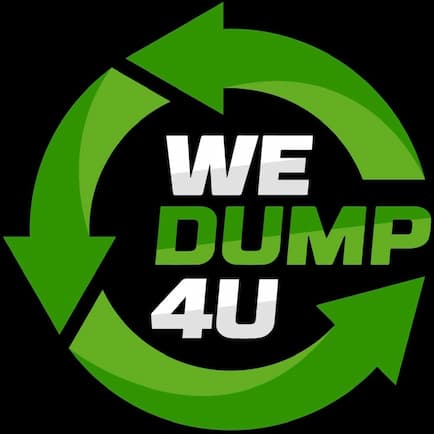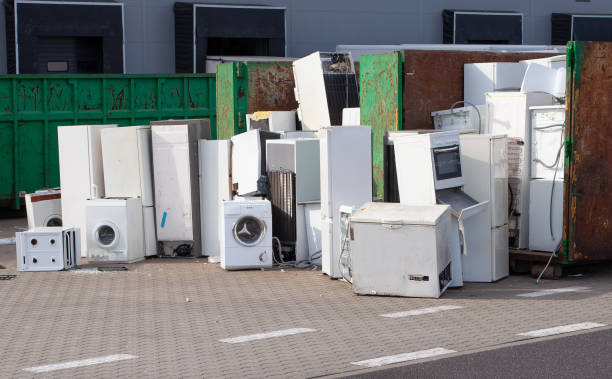Whether you’re upgrading to new appliances, clearing out old electronics, or simply decluttering your home, removing electrical items can be more complicated than it seems. From safety concerns to environmental responsibility, it’s essential to handle these items correctly to avoid injury, legal consequences, or unnecessary waste. In this guide, we’ll explore the common mistakes people make when removing electrical items from their homes and how you can avoid them.
Ignoring Proper Disposal Regulations for Electrical Waste When Removing Electrical Items
One of the most significant mistakes homeowners make is not following the proper disposal methods for electrical items. In the UK, electrical and electronic waste (often referred to as WEEE waste – Waste Electrical and Electronic Equipment) is regulated to ensure these items are recycled correctly and do not end up in landfills, where they can release harmful substances into the environment.
Why This Matters:
Electrical items often contain hazardous materials such as lead, mercury, and cadmium, which are harmful to the environment and human health. Improper disposal, such as throwing them in the regular bin, can lead to contamination in landfills and waterways. Additionally, in the UK, failing to dispose of WEEE waste correctly is illegal and can result in fines.
How to Avoid:
Take your electrical items to a designated recycling centre or contact your local council to arrange collection. Many areas have specific collection points for WEEE waste. Some retailers also offer take-back schemes when you purchase a new item, allowing them to recycle your old one.
Trying to Dismantle Electrical Items Yourself
Another mistake people often make is trying to dismantle electrical appliances or devices on their own. Whether it’s to extract valuable parts or to make the item easier to transport, disassembling electrical items without the right skills or tools can be dangerous.
Why This Matters:
Many electrical items, such as refrigerators or televisions, contain dangerous components like capacitors, which can store electrical charges even when the item is unplugged. Attempting to dismantle them could lead to electric shock, injury, or exposure to hazardous materials like refrigerants. Moreover, improperly dismantled items are harder to recycle because many recycling centres require intact devices to efficiently separate and process different materials.
How to Avoid:
Never attempt to disassemble electrical items unless you are qualified to do so. Instead, leave this task to professional recycling centres or waste removal services, which have the tools and expertise to handle and dismantle these items safely.
Overlooking Data Security When Removing Electronic Devices
A common oversight when removing electrical goods like laptops, phones, or tablets is neglecting to erase personal data stored on these devices. Even if the device is broken, it’s still possible for someone to retrieve personal information from the hard drive or memory.
Why This Matters:
Identity theft and fraud are real threats if sensitive personal information falls into the wrong hands. Bank details, login credentials, and private photos stored on old devices could be accessed if the device isn’t wiped clean before disposal.
How to Avoid:
Before disposing of any electronic device that stores data, make sure to wipe it clean. For computers and laptops, use factory reset options and consider using specialised software that permanently deletes data from hard drives. For phones and tablets, perform a full factory reset and remove any SIM or memory cards. If the device is completely broken, physically destroy the hard drive or internal memory to prevent data theft.
Dumping Electrical Items with General Household Waste
It might be tempting to throw small electrical items in the general waste bin, especially if they’re old or broken. However, this is illegal under UK law and can result in significant environmental damage.
Why This Matters:
When electrical items are thrown into general waste, they often end up in landfills, where their toxic components can leak into the ground and pollute the environment. Moreover, dumping electrical waste in household bins violates the UK’s WEEE regulations, which require proper disposal and recycling of electronics.
How to Avoid:
Always check your local council’s guidelines for WEEE waste disposal. Small electrical items can often be taken to specific recycling bins at supermarkets or electrical stores. Larger items may need to be collected by your local waste authority or a licensed waste removal service.
Failing to Check for Hazardous Materials in Old Electrical Items
Many old electrical items, particularly those manufactured before modern environmental regulations, contain hazardous materials that need special handling. Items such as old televisions, fridges, and fluorescent light bulbs may contain harmful chemicals like mercury, PCBs (polychlorinated biphenyls), or CFCs (chlorofluorocarbons).
Why This Matters:
Improper handling of hazardous materials can cause serious health issues and environmental harm. For example, older fridges and freezers may contain CFCs, which can deplete the ozone layer if released. Similarly, mercury from light bulbs can contaminate water supplies if not disposed of correctly.
How to Avoid:
Before disposing of older electrical items, research whether they contain hazardous materials. Many local councils provide guidance on how to dispose of these items properly, and professional waste removal services are trained to handle hazardous waste safely.
Donating or Selling Unsafe Electrical Items
It’s great to give old appliances a second life through donation or resale, but you should never pass on an electrical item that is damaged or unsafe. Even if an appliance seems to be working, faults can develop over time, especially if the item is old or has been repaired multiple times.
Why This Matters:
Selling or donating faulty electrical items puts others at risk of fire, electric shock, or injury. In the UK, the sale of second-hand electrical items is regulated, and any item sold or donated must meet safety standards, including undergoing Portable Appliance Testing (PAT) if necessary.
How to Avoid:
Before selling or donating any electrical item, check that it is in good working order and meets safety standards. If you’re unsure, it’s better to recycle the item through a licensed waste disposal service or take it to a WEEE recycling point.
Forgetting to Remove Batteries Before Disposal
When removing electrical items, people often forget to remove batteries. This is a problem because many batteries contain hazardous materials like lead and acid, which can leak if not disposed of properly.
Why This Matters:
Batteries that are left inside old electronics can pose a fire risk, especially lithium-ion batteries found in laptops, smartphones, and tablets. Additionally, when batteries degrade, they release chemicals that are harmful to the environment.
How to Avoid:
Always remove batteries from electrical items before disposal. Batteries should be recycled separately through designated collection points, which are available at many supermarkets, recycling centres, and electrical stores.
Not Using a Licensed Waste Removal Service For Electrical Items
A major mistake people make when disposing of electrical items is not ensuring the waste removal company they hire is licensed. In the UK, any company that handles waste must be registered with the Environment Agency as a licensed waste carrier. Unfortunately, some unlicensed operators may engage in illegal fly-tipping, leaving you liable for hefty fines.
Why This Matters:
If an unlicensed waste removal service illegally dumps your electrical items, you could be fined under the Duty of Care regulations, even if you weren’t aware. Fly-tipping is a serious problem in the UK, and local councils are cracking down on offenders to reduce environmental damage.
How to Avoid:
Before hiring a waste removal service, ask for their waste carrier registration number and verify it on the Environment Agency’s website. A reputable company will be fully licensed and insured, ensuring your electrical waste is disposed of legally and responsibly.


